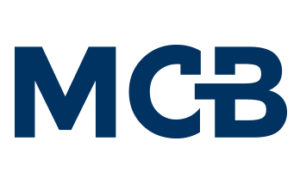
 “The way that metals wholesaler MCB connected with us through EDI is now our benchmark for future clients.” This was one of the remarks that a metal producer made regarding the EDI connection with MCB. We interviewed most of the suppliers that have connected with us, the results of the interviews are discussed below.
“The way that metals wholesaler MCB connected with us through EDI is now our benchmark for future clients.” This was one of the remarks that a metal producer made regarding the EDI connection with MCB. We interviewed most of the suppliers that have connected with us, the results of the interviews are discussed below.
When asked, all suppliers that sell through EDI to MCB say that digital business is important: “Our management wants to promote and deploy automation, electronic exchanges and e-services to all our customers. Not only in the order process, but in all domains: supply chain from order to cash. Our top management has set up clear objectives for the coming years.” Only one metal supplier makes a distinction based on customer size: “It is an important issue or our bigger customers, high volumes and large numbers of orders. Especially strategic customers.”
Most suppliers however admit that they only do little digital business (“we are just starting”), some are more advanced: “More than ten years ago we started with digital business, with about 15-20 customers during the years.” According to one supplier, it differs per sector: “Automotive customers were pioneers in EDI.” When asked, most suppliers do less than 10% of business digitally. But MCB was not the first digital partner for most of them, although one added “for us MCB was one of the customers which helped us with a very fast and secured implementation, due to the excellent knowledge both at MCB and their EDI-implementation partner Quyntess.”
When asked, almost every metal supplier that now sells metal to MCB through EDI says that it works faster: “The biggest advantage is that we are now faster with processing orders, EDI saves the time of data entry and checking. It’s just minutes to process an order now.” Some also say that there are now less errors: “Less typos, wrong selections etc.” Other advantages mentioned by individual suppliers are “this improves the relationship” and “we can now work more proactively with our sales organization.”
When asked what hardly goes wrong nowadays, most suppliers mention the material numbers: “There are less errors made through EDI, as our automation process is focusing on securing correct specific (and sometimes very long) customer material numbers.” One supplier also mentions that prices are now less often wrong.
The suppliers were also asked about the effect of EDI on order/production leadtime, OTiF performance and process management:
In the ‘come as you are’ approach of MCB on EDI, suppliers are able to use their own message formats. All suppliers liked this approach: “We have modules that follow standards, in case of MCB/ Quyntess it was a big help that we had this freedom.” Two suppliers had a ‘but’: “There were some pain points but they were solved very quickly” and “It was quite easy but it took more time and more efforts.”
All suppliers that we interviewed were positive about the project approach of MCB and Quyntess and most see the approach as ‘more reliable’ than those of other parties: “With other partners, we sometimes have to follow up more actively in order to keep the planning.” One supplier even saw it as a benchmark: “We also learned ourselves from this implementation, this is our new standard now.”
When asked, it was very difficult for suppliers to calculate the number of man hours that went into the project: “Our projects have a throughput time that ranges from 4 to 12 weeks, although we are not continually busy with the implementation of course.”
When asked, most EDI implementations had some startup problems. But these were resolved quickly: “We had only a minor glitch in six months, but the response was good.” The daily message exchange seems to work well now: “Very reliable, not much problems. We don’t see the daily exchanges at our department, but we have few complaints.” One supplier adds the good response at MCB: “MCB is really responsive, if needed.”
Most suppliers we asked want to see other customers move to digital too: “Definitely, we would like to onboard more and more customers in our digital processes.” Some suppliers however add that it depends on the company size of the customer: “For small customers it could be less interesting because of the investment.”
One of the suppliers interviewed summed it all up in a quote: “The EDI project with MCB and Quyntess was full of trust, both with IT people and commercial people. The collaboration was professional, which helped us reach our goal and reinforce our partnership.”
We can conclude that the metal producers that connect with MCB through EDI agree on a lot of things:
More information on connecting with MCB through EDI? Ask your contact person or daniel.van.tongeren@mcb.nl
